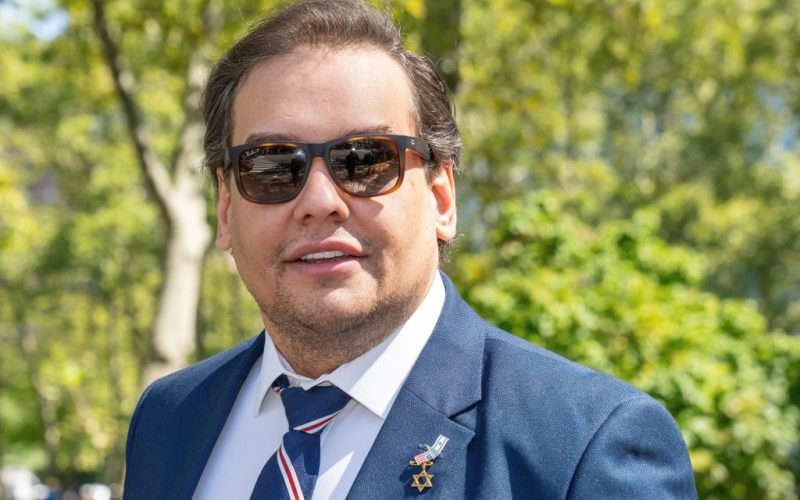Former Rep. George Santos has leveraged his notoriety into more than $800,000 in Cameo appearances and participating in a documentary, federal prosecutors said in a letter opposing his bid to delay his fraud sentencing.
turned his track record into a very lucrative cottage industry.
The expelled GOP Congressman is slated to be sentenced on Feb. 7, and on Friday he asked for a six-month reprieve so he could record more episodes of his new podcast, “Pants on Fire with George Santos.”
The infamous Long Island fabulist needs revenue from the podcast to pay the $205,000 in forfeiture cash that would be due a month before sentencing, his lawyers wrote in a letter to Federal Court Judge Joanna Seybert. He also owes more than $370,000 in restitution.
Federal prosecutors scoffed at that request Monday, saying they doubted the podcast could raise enough revenue to cover what he owes.
Prosecutors also pointed out that Santos already has two six-figure revenue streams. He’s earned more than $400,000 in appearances on Cameo — a site where users pay celebrities for personalized messages — since he was booted from Congress in December 2023. He also made $400,000 for his participation in a documentary.
“Despite earning more than $800,000 (and, prior to that, maintaining a $174,000 publicly-funded salary as a Congressman), Santos has claimed to the Probation Department that he has little more than $1,000 in liquid assets,” prosecutors said.
“No explanation is given in Santos’s letter for how those funds were spent. The Court should have serious misgivings about postponing Santos’s sentencing based on his purported failure to save $578,752.94 after having previously claimed in the media to earn $80,000 per day capitalizing on his notoriety,” prosecutors continued, referencing a Vanity Fair article.
In August, Santos pleaded guilty to wire fraud and aggravated identity theft, three weeks before he was set to go to trial for a string of brazen scams, including repeatedly charging his campaign donors’ credit cards without their permission and using donor money to buy designer fits.
Santos —who became a national punchline after it came out that he lied about his education, religion, family history, professional experience and property ownership — inked a contract to record a podcast the same month as his plea deal, according to his attorney’s filings. Logistical issues like finding studio space delayed the first episode until Dec. 15, and so far, he’s recorded 10 episodes, with another 30 to go, according to the filing.
“Mr. Santos now has a viable path to making meaningful progress in satisfying his obligations,” his lawyers wrote.
Federal prosecutors countered that letting Santos delay his sentencing “would create a perverse incentive structure, rewarding defendants who seek to capitalize on their notoriety and criminality.”
“Put differently, allowing Santos to stave off sentencing specifically to monetize his infamy would send a message to the public that crime pays,” prosecutors wrote. The name of his podcast, the feds pointed out, is “a winking reference to the lies, fraud and deceit that are at the heart of this case.”








